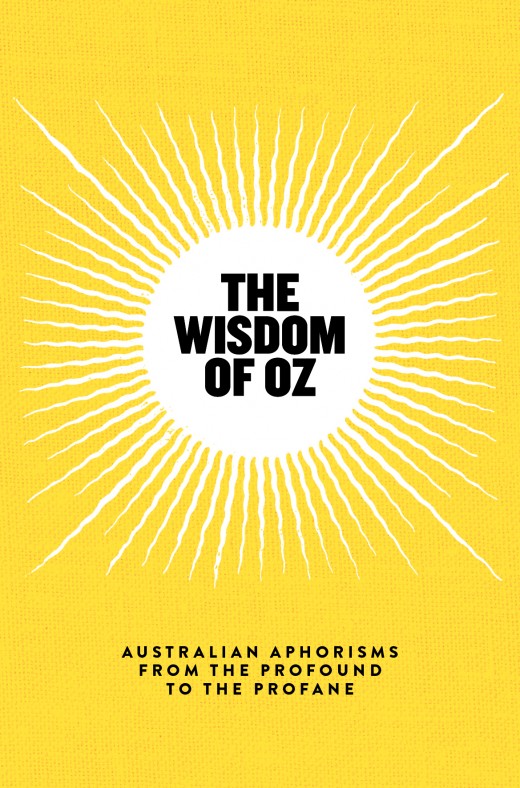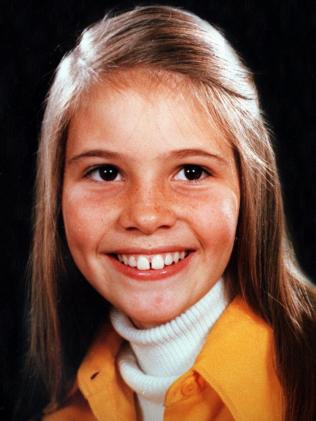‘Truths about the Australian character: aphorisms we have known and invented’, Honest History, 27 November 2017
Amanda Laugesen* reviews The Wisdom of Oz: Australian Aphorisms from the Profound to the Profane
‘Such is life.’ ‘Life wasn’t meant to be easy.’ ‘This is the recession that we had to have.’ Some quotations have become fixtures of our popular consciousness. Ned Kelly’s famous last words now are a popular choice for a tattoo; Malcolm Fraser’s comment is trotted out frequently by the media; and Paul Keating’s words are seared in our collective memory.
 Do any of these feature in this little book of aphorisms put out by Black Inc.? Kelly’s words make the second quotation in, and Fraser’s the very last entry. Keating’s don’t really qualify as an aphorism, but there are numerous quotations from him that do make this collection: ‘Leadership is not about being nice. It’s about being right and being strong.’ ‘Good economics is good politics.’ Both are less familiar, but they do reveal something about Keating’s style of leadership.
Do any of these feature in this little book of aphorisms put out by Black Inc.? Kelly’s words make the second quotation in, and Fraser’s the very last entry. Keating’s don’t really qualify as an aphorism, but there are numerous quotations from him that do make this collection: ‘Leadership is not about being nice. It’s about being right and being strong.’ ‘Good economics is good politics.’ Both are less familiar, but they do reveal something about Keating’s style of leadership.
The Wisdom of Oz is a collection (presented in a small, gift size format) of quotations and aphorisms. It has no credited author or editor, but the introduction describes the criteria used to select the quotations: ‘[a]n aphorism worthy of its name requires truth, surprise and concision … we looked not only for lasting truths, but also for a touch of self-deprecation, an admission of fallibility, an honest comment that might cost political points’. The introduction admits that not all the included quotations are real aphorisms, but argues that every quotation selected ‘speaks in a pithy way to a truth about the Australian character.’
The collected quotations (one per page; there are about one hundred altogether) traverse the range of Australian political, cultural, and social life, although there are some interesting observations to be made about what the selections say about that life. Many famous Australians are quoted here: from Ned Kelly, Breaker Morant, and Henry Lawson to Errol Flynn, David Marr and Malcolm Turnbull. Women are under-represented, perhaps reflecting the long tradition of sexism in Australian public life. Germaine Greer, Julia Gillard and Miles Franklin are present, along with a handful of quotes from other Australian women.
It is worth noting the number of expatriates represented in these pages, reflecting the critical eye of those who have left Australia: Flynn, Greer, Barry Humphries, Clive James, Barry Gibb (yes, the Bee Gee), and others. A couple of New Zealanders get in also, Russell Crowe and Robert Muldoon. Finally, only three quotations are from Indigenous Australians: Charles Perkins, Cathy Freeman, and Oodgeroo Noonuccal. Given the obscurity of some of the quotations selected, arguably a more diverse and interesting set of authors and speakers might have found their way onto these pages.
The quotations themselves are interesting, but what is the value of such a collection? Established dictionaries of quotations can be found: the Oxford Dictionary of Quotations, which has run through eight editions, has over 20 000 quotations; the Yale Book of Quotations contains over 12 000. Both aim to provide solid research into the origin of the quotation (as inaccuracy abounds in such things). These volumes are where we turn when we want to know if Horace Greeley really did say ‘Go west, young man’ (he did).
The Wisdom of Oz does not intend, however, to offer authoritative evidence and context for the quotations provided – although the historian in me wished there had been some. Whether Ned Kelly said ‘Such is life’, for example, remains a matter of debate. At the very least, I would have liked to have seen some explanation of who people are: Bob Hawke may be familiar to just about everybody but Elizabeth Evatt is perhaps obscure to the general reader.
More importantly, it would help to know when people said what they said – if a politician is in, out, or aspiring to office gives us very valuable context for understanding their words. One other minor quibble with the choices is that some don’t say anything about Australia. For example, Errol Flynn’s ‘It isn’t what they say about you. It’s what they whisper’ seems more universal than Australian. And I am left puzzling over the quote by Elle MacPherson – surely profound? – ‘Underwear is an emotional thing’.
 Elle Macpherson (Daily Telegraph)
Elle Macpherson (Daily Telegraph)
This book is fun and occasionally enlightening. What it does suggest is that maybe there is a place in Australian life for a more extended book of Australian quotations, along the lines of the great British and American publications, that would serve as an authoritative reference and dispel some of the myths around whether some things were actually said (and what the exact words were). The Wisdom of Oz doesn’t aim to be this, but it does give us a tantalising insight into what such a book might tell us about the richness and harshness of Australian public life.
I will finish this review with two of my favourites:
‘I’m not tied to any particular political line.’ – John Hewson.
‘In Australia, not reading poetry is the national pastime.’ – Phyllis McGinley.
* Associate Professor Amanda Laugesen is a historian and lexicographer, and is currently Director of the Australian National Dictionary Centre at the Australian National University. She has written extensively on the language of early Australia and the Diggers (use our Search engine with search term ‘Laugesen’ to find references).

